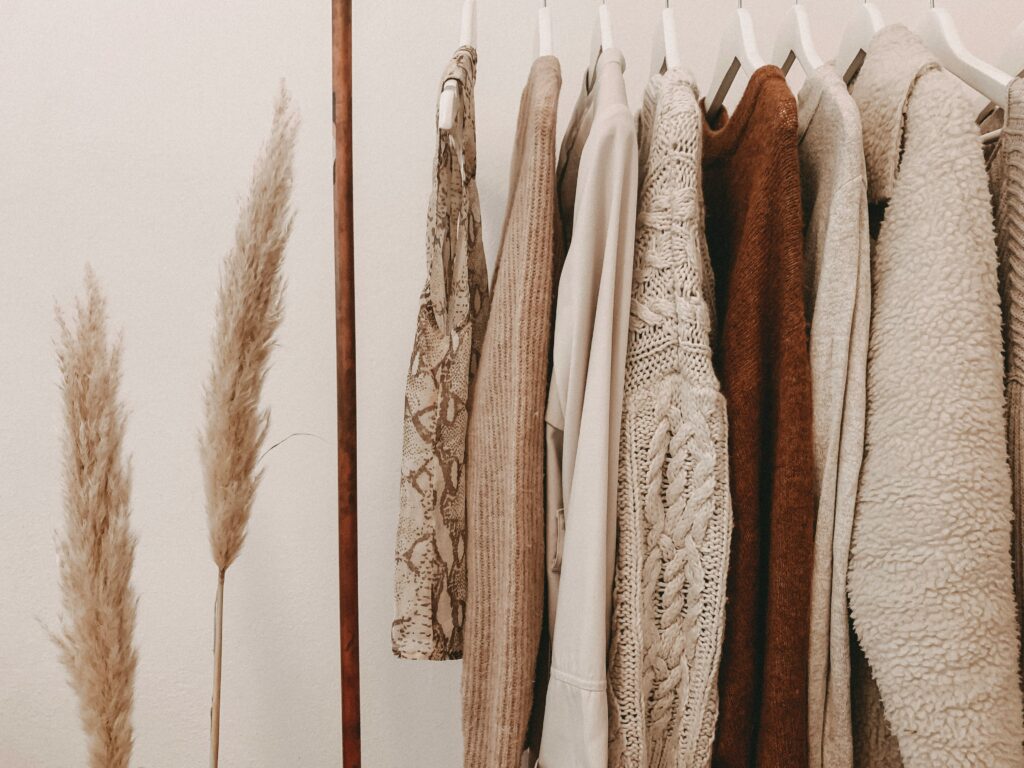
Cascale, Worldly Host Climate Event, Mark Decarbonization Steps
The organizations co-hosted a New York Climate Week Event with many fantastic speakers and insights. Read more here!
Dhawall Mane director, verification, training and insights, participated in a virtual To the Finish Line (TFL) event organized by GIZ in Vietnam.

Cascale team member Dhawall Mane director, verification, training and insights, recently participated in a virtual To the Finish Line (TFL) event organized by Deutsche Gesellschaft für Internationale Zusammenarbeit (GIZ) in Vietnam.
TFL is a program designed to support continued environmental performance in Vietnam’s apparel supply chain through the effective use of Cascale’s Higg Facility Environmental Module (Higg FEM) tool, which is exclusively available on Worldly. More than 700 manufacturers were invited to attend the town hall event; most participants were Higg FEM users.
Higg FEM is a transformative tool used to assess the environmental impact of product manufacturing at facilities, including water use, waste management, chemical, and energy use. In doing so, it not only uncovers hotspot areas for improvement, but also reduces redundancy, mitigates risk, and creates a common language to communicate sustainability to stakeholders. Vietnam is currently the second-highest ranked in v-Higg FEM country average score (Higg FEM 2022) and, reflecting Cascale’s own founding and guiding principles, TFL aims for pre-competitive collaboration for collective action.
Through TFL, manufacturers in the region can share knowledge to support environmental sustainability while responding to evolving needs for due diligence and shared responsibility. Participants are also invited to join a Professional Peer Community of Learning for Action on Higg FEM and beyond. Established in 2022 and running continuously since then, the goal of the TFL program is to create an exchange platform of practical knowledge by industry for industry, supporting peer-to-peer learning and problem solving.
The large-scale and practical TFL training program consists of two web-based sessions designed to elevate understanding of aspects of the Higg FEM, including management of energy, water, waste, chemicals, and greenhouse gas emissions. In the “Scaling Collective Action” session to which Cascale’s Mane contributed, regional industry stakeholders discussed practical tips on implementation. These included pooling financial and time resources, as well as what impact the TFL program has had so far and how the industry can adopt similar collective action programs in different sourcing regions.
Mane emphasized the importance of taking a systems approach in tracking data and of entrusting this responsibility to qualified, accountable personnel such as those trained through the program. “TFL is a shining example of Vietnam’s leadership in undertaking supply chain capacity building programs for Higg FEM,” Mane said.


With reporting compliance around the corner, Cascale published a white paper showcasing how the Higg Brand and Retail Module (Higg BRM) is answering the call.
In the face of today’s challenging and ever-changing legislative landscape, brands and retailers require reliable tools to support them in meeting compliance requirements. In short, The Corporate Sustainability Reporting Directive (CSRD) mandates the development of detailed reporting standards, known as the European Sustainability Reporting Standards (ESRS). In 2025, companies subject to reporting will be required to comply with CSRD by reporting 2024 data. The CSRD amends and strengthens the existing Non-Financial Reporting Directive (NFRD). Compared to NFRD the CSRD reporting process will be more complex, comprehensive, and stringent.
The Cascale team has been readying for regulation with its Higg Index toolset.
Although not designed to be a comprehensive compliance sweep, the Higg Brand and Retail Module answers many of the ESRS reporting requirements while providing companies detailed mapping against ESRS topical standards. Each topical standard includes disclosure requirements that organizations must follow to report on their sustainability impacts, risks, opportunities, and performance related to the specific topic.
Regarding Cascale’s recently published Higg BRM x CSRD white paper, Maravillas Rodriguez Zarco, senior director, Higg Index strategy and operations at Cascale said, “We are dedicated to ensuring the latest version of Higg BRM is fit for purpose in supporting our members in their compliance journeys, especially as the white paper has shown for the European Union’s Corporate Sustainability Reporting Directive (CSRD). As it exists today, we know the tool is a valuable asset for users that have to report following ESRS. The Higg BRM will continue to play a pivotal role in the regulatory compliance process. With the Higg BRM, consumer goods companies can not only meet relevant regulatory requirements but elevate their sustainability performance.”
In their compliance journey, companies will need to undertake a double materiality assessment, per EU law.
The double materiality assessment means a company has to conduct an impact materiality assessment and a financial materiality assessment, showcasing clear consideration to people and the planet.
The Higg BRM specifically supports users with its impact materiality assessment The ESRS also acknowledges the importance of “entity-specific disclosures.” Uniquely, the Higg BRM presents an opportunity to assist users in disclosing industry-specific material topics with the necessary depth and granularity. These are nuanced topics that the agnostic ESRS may not cover adequately.
In the future, the Higg BRM team will further enhance tool alignment with the CSRD and other relevant regulations. By identifying and bridging gaps, the Higg BRM will further support stakeholders in achieving a more structured and transparent approach to sustainability reporting.
In an era where sustainability reporting is more critical than ever, Cascale’s Higg BRM is leading the charge to help brands meet new EU standards.

In an era where sustainability reporting is more critical than ever, Cascale’s Higg BRM is leading the charge to help brands meet new EU standards
Amsterdam, Hong Kong, Oakland (CA) — August 14, 2024: Cascale, formerly the Sustainable Apparel Coalition, has published a white paper that details how the organization’s Higg Brand & Retail Module (BRM) can help companies meet their regulatory reporting obligations under European Union (EU) law. The paper, titled “How the Higg BRM Supports CSRD Reporting Obligations,” speaks specifically to how the tool is continually evolving to support companies in meeting their regulatory reporting requirements under the EU’s Corporate Sustainability Reporting Directive (CSRD).
In the face of today’s challenging and ever-changing legislative landscape, brands and retailers require reliable tools to support them in meeting compliance requirements. The Higg BRM is the leading framework specific to the textile, apparel, and footwear industry designed for brands and retailers to evaluate, assess, and improve Environmental, Social, and Governance (ESG) performance. The tool assesses 11 critical impact areas along global value chains to foster a holistic approach to sustainability, and is exclusively available on Worldly, the most comprehensive sustainability data and insights platform.
“Through continuous evolution and updates, the Higg BRM empowers organizations to not only meet relevant regulatory requirements, but to forge ahead with impactful, data-driven sustainability strategies,” said Maravillas Rodriguez Zarco, senior director, Higg Index strategy & operations at Cascale. “The Higg BRM plays a pivotal role for companies who are navigating this complex regulatory landscape.”
The Higg BRM has evolved to assist brands and retailers in fulfilling reporting obligations, while also supporting companies in the development of consistent corporate sustainability strategies to streamline efforts and reduce redundancy across sustainability initiatives. Beginning in 2024, Cascale conducted a thorough analysis of the European Sustainability Reporting Standards (ESRS), which provides specific guidance on how companies should report on sustainability. Cascale mapped how the standards align with the Higg BRM, offering a clear pathway for organizations aiming to comply with ESRS. As detailed in the white paper, there is a 65 percent content overlap between the ESRS and the Higg BRM.
While the Higg BRM aligns broadly with ESRS on sustainability topics, it also delves deeper into issues that are specific to the textile, apparel, and footwear sector. This focus on sector-specific material issues ensures Higg BRM users can expect a comprehensive tool that not only meets general reporting requirements but also emphasizes the nuances and priorities unique to the industry.
Cascale is currently hosting an ongoing webinar series titled “Navigating Legislation & the Higg Index,” which highlights how the Higg Index tools serve as a valuable resource and can offer specific guidance on reporting requirements. The most recent webinar, co-hosted by Cascale and Worldly, provided an in-depth discussion on how the Higg BRM intersects with key pieces of legislation at the EU level, such as the CSRD.
Cascale is committed to continuously evolving, updating, and refining the Higg Index to meet the needs of its members, Higg Index users, and the industry. In collaboration with Worldly, the Higg BRM will be further refined to enhance alignment with the CSRD and other relevant regulations. By identifying and bridging gaps, the Higg BRM continues to support stakeholders in achieving a more structured and transparent approach to sustainability reporting.
About CSRD
The CSRD represents a significant leap forward in the corporate reporting landscape within the European Union. It is a directive that requires transposition into the national law of all 27 EU Member States, establishing its requirements as legally binding for companies within its scope. The goal of the CSRD is to enhance the scope and quality of sustainability reporting across the EU, ensuring that sustainability disclosures are more consistent, comparable, and reliable for stakeholders to make informed decisions.
To achieve this, the CSRD mandates the development of the European Sustainability Reporting Standards (ESRS). Designed by the European Financial Reporting Advisory Group (EFRAG), the ESRS provides specific guidance on how companies should report on sustainability. These standards require companies to provide detailed disclosures encompassing qualitative and quantitative information across a range of sustainability topics, such as climate change, environmental protection, social rights, and employee matters.
About Cascale
Cascale is the global nonprofit alliance empowering collaboration to drive equitable and restorative business practices in the consumer goods industry. Formerly known as the Sustainable Apparel Coalition, Cascale owns and develops the Higg Index, which is exclusively available on Worldly, the most comprehensive sustainability data and insights platform. Cascale unites over 300 retailers, brands, manufacturers, governments, academics, and NGO/nonprofit affiliates around the globe through one singular vision: To catalyze impact at scale and give back more than we take to the planet and its people.
In this paper, we articulate exactly how the Higg Brand and Retail Module (Higg BRM) can assist brands and retailers (undertakings) in fulfilling their reporting requirements under the European Union’s (EU) Corporate Sustainability Reporting Directive (CSRD), while also helping to develop consistent corporate sustainability strategies and avoid duplication across sustainability initiatives.

Please fill out the form to download the publication
In March, Cascale and Worldly held a webinar, “Navigating Legislation & the Higg Index: Higg Product Tools with PEF and more.” In this blog, we share the recording, highlight key takeaways, and address submitted questions during the session.

Key Takeaways
“The PEF methodology is likely to play an important role in the future EU product and consumer law legislation. The Higg Product Tools methodology is well-positioned for alignment with Product Environmental Footprint (PEF)/PEF Category Rules (PEFCR), and the Higg Product Tools can support members in navigating evolving legislations and provide guidance in their compliance journeys.” –Elisabeth von Reitzenstein, senior director of policy and public affairs
“France has been, and probably will be for the foreseeable future, a frontrunner on sustainability legislation….The French label is based on a type of PEF. It has very strong alignment with the European Product Environmental Footprint principles. One difference on durability is that the French Methodology also includes ‘emotional durability’ to a more committed extent than the European one. This proves again that a common method on PEF is important…Another new French initiative is a draft bill targeting fast fashion and sometimes ultra-fast fashion… Also on the European level, France is fighting its corner on these issues. At a Council of the EU meeting on March 25, it called, alongside Sweden and Denmark, for an EU-wide export ban of hazardous textile waste to developing countries.” – Elisabeth von Reitzenstein, senior director of policy and public affairs
“Through our partnership with Cascale, Worldly is paying close attention to this regulatory landscape and what our customers need in order to prepare and report on their sustainability performance and progress. My team meets at minimum weekly with Cascale to get deep into the weeds on PEF, how it’s evolving, and what it means for our tools and the solutions we’re delivering. The Cascale team also helps us understand the challenges the industry is facing firsthand and ways to address it in the tools. Data is going to play a critical role in many, if not all, of these reporting requirements.” – Paula Bernstein, senior data manager, Worldly
“The concept of accessibility is really key for the Product Tools because we want a variety of users with different levels of LCA knowledge, as well as data availability to produce consistent environmental product footprint results.” – Quinten Geleijnse, manager, Higg Product Tools and lifecycle assessments
“Like the rest of the Higg Index Tools, we don’t want the sole purpose of the tools to be compliance – the tools should be going beyond regulation. We’re not just trying to have a PEF-compliant calculator. That is not ambitious enough to get the industry on track to where it needs to be. [The Higg Index] needs to be aligned with PEF, at minimum for compliance, but we do need to go beyond that.” – Joel Mertens, director, Higg Product Tools
“There are a lot of commonalities between Higg Index Product Tools, PEF, and France’s Ademe methodology but we do expect that even with the same product information, it is very likely you will have different results depending on which methodology you’re calculating to or which region you’re calculating to…One of the important things is while there are differences in the results, the impact categories, the data needs, there is a way to bring this all together, and that is the hub concept.” – Mertens
“One of the key aspects here is the difference between a footprint calculation and a footprint study, or LCA study. Our tools are calculating an environmental footprint of a product. An LCA study is distinct from the footprint calculation. There are additional requirements that have to be done to take you to that full study level, including a report and verification.” – Mertens
“PEF is an implementation of ISO-1440 and 44 standards. There are study requirements associated with that that I think get lost in the narrative. As to other tools in this space, the one thing I will say right now is there is not a final PEFCR for apparel and footwear. There are a lot of claims and misunderstandings as to what you can say in terms of compliance to PEF and PEFCR, and there’s no such thing at this point.” – Mertens
Questions Answered
On the webinar, speakers discussed relevant EU legislation and initiatives, including:
These regulations relate in different ways to the Product Environmental Footprint (PEF) method and product footprinting in general. CSRD requires a thorough assessment of an organization’s impacts, risks, and opportunities, and specifically mentions PEF as a way to assess these. In addition, the calculation of scope 3 emissions is required under ESRS E1, for which LCAs and/or PEF studies are useful. ESPR will likely require environmental impacts to be communicated to external stakeholders through the Digital Product Passport, for which PEF and LCA studies can be used. The European Commission proposal for the SGCD sees a more diminished role for PEF in its current form than initially foreseen. Although PEF might not become a mandatory requirement itself under SGCD, the more simplified procedure now pursued may include a presumption of conformity for environmental claims that are based on recognized methods, such as PEF. The French labeling law is based on calculations obtained from a central database run by Ecobalyse and the Agency for Ecological Transition (ADEME). This method is inspired by PEF but has some noticeable differences.
The PEF category rules (PEFCR) contain specific rules for product categories that complement the PEF methodology. The rules direct focus to the parameters relevant to that specific product group, further standardizing the methodology. The Technical Secretariats (TS) of the EU develop these PEFCRs, and Cascale coordinates the TS developing the PEFCR for Apparel & Footwear, which includes determining the product-specific methodology and primary data requirements. The TS does not determine what secondary datasets are to be used and has to stay in line with the general PEF methodology. The PEFCR is expected to be finalized in Q1 of 2025 and is currently in its consultation phase.
The Higg Product Tools aim to guide product eco-design decisions by providing reliable, high-quality data. Given the legislative developments and the changing data requirements that they cause, the Product Tools should evolve accordingly. Our objective is to develop the Product Tools as a hub that allows different users (with different levels of data availability and LCA knowledge) to compute different types of results for different purposes. This means users can continue to identify impact hotspots and calculate scope 3 emissions, while we expand the tools’ functionalities to allow for PEF calculations. It is important to note that PEF compliance entails more than calculations only as PEF requires an extensive study report that has to be verified by a third party.
Some steps towards PEF-aligned calculations have already been taken by Cascale and Worldly. The current Product Module methodology was developed in alignment with the 2021 version of the PEFCR. This means the Product Tools are already well set up to expand towards PEF-aligned calculations. The team has mapped the key remaining differences between the current Product Tools methodology and emerging regulatory frameworks. This exercise informs Cascale’s product information Member Expert Team (MET) that currently helps define the product-relevant information fields the Product Tools need to contain to align with the data requirements of various frameworks, including PEF, ADEME, and the DPP. As indicated by the workstream flow chart below, Cascale will begin integrating the ADEME and PEF calculation methodologies with the Product Tools when they are finalized. In the meantime, work with the Product Information and Product Impact MET and continue to develop the tools’ hub functionality.

Cascale is working with Wordly to create a harmonized set of information fields for the Product Tools, containing all required information from the different legislative frameworks and distinguishing between mandatory, recommended, and optional data points. This allows users to compute different types of results based on a single set of information and enables the provision of at least some results when limited data is available. Cascale will also expand its current list of five impact categories to the 16 impact categories specified in the PEF methodology. To enable different result types to be computed, different calculation methodologies will have to be integrated into the Product Tools, some of which rely on different datasets than those currently used in the tools. Cascale is working together with Wordly to allow for parallel impact calculations and add these new (EF) datasets to the tools.
Please note that the visual is taken from the webinar slide deck and the timeline reflects the March 27, 2024 webinar date. Depending on when you are viewing this blog post, the visual may be out of date.
Cascale and Worldly are working together to expand the Product Tools to enable users to select the energy mix used to manufacture their products. This will ensure the country or facility-specific energy mix is considered in the calculations, providing more precise impact calculations. A next step will be to connect the Higg Product Tools with the Higg Facility Environmental Module (FEM) to enable the sharing of facility data to be used for product impact calculations.
While many of our members can and are already using the product tools for homeware and home textiles, PEF currently is explicit for “Apparel and Footwear.” The sectors the EU Commission has identified for PEF are the following:
However, the Product Tools may still be used to assess adjacent products such as home textiles. Even our current Product Module tool has an option for an “other” product category, which is being used by some members to assess these types of products.
If you have any remaining questions, we invite you to email us at marcomm@cascale.org.
On June 12, we hosted an insightful webinar that explored the alignment between the Higg Brand & Retail Module (BRM) and key regulations, including the Corporate Sustainability Reporting Directive (CSRD).


In the world of physics, few names carry as much weight as Peter Higgs.
Yet, it’s in the realm of sustainability where his legacy finds a surprising homage. Higgs, who died Tuesday at age 94 in Edinburgh, Scotland, received the Nobel prize for physics in 2013 for his work on the boson particle.
The Higgs boson particle would forever shape humanity’s understanding of atoms – and at Cascale, it served as inspiration for the Higg Index tools. Today, these tools are used by 24,000 businesses worldwide, empowering collaboration to drive equitable and restorative business practices in the consumer goods industry.
At Cascale’s recent rebrand celebratory event in London, co-founder Rick Ridgeway shared the story of how Higgs’ breakthrough announcement impacted the organization’s earliest days. “They had just discovered a subatomic particle [that] was going to unify the universe, Ridgeway said. “They were going to announce it about the same time we wanted to release our tool…I said, ‘If the Higgs boson atomic particle is going to unify the universe, the Higg assessment tool is going to save it.’”
Much of Higgs’ lifetime of work took place at Edinburgh University, and, in 2012, the institution set up the Higgs Centre for Theoretical Physics in his honor – the same year his theory was accepted and proven by scientists at The Large Hadron Collider at Cern in Switzerland. Decades of collaboration also went into the discovery: Higgs shared the Nobel prize with Belgian theoretical physicist François Englert, whose work directly contributed to the particle’s discovery.
Higgs’ legacy continues to inspire, as use of the Higg Index tools expands across the consumer goods industry, accelerating adoption of science-aligned targets through the Decarbonization, Manufacturer Climate Action Programs (MCAP), and other impact programs. This example is just one of the many synergies between industry and science in pursuit of a better planet.
This webinar was an introduction into the Higg BRM and a live Q&A session to answer any related questions.
On March 27 we hosted the inaugural webinar in this new series on how the Higg Product Tools intersect with key legislation such as Product Environmental Footprint (PEF), Ecodesign for Sustainable Products Regulation (ESPR), and Substantiating Green Claims Directive (SGCD).

Amsterdam, Hong Kong, Oakland (CA) – March 4, 2024: Cascale (formerly the Sustainable Apparel Coalition) has launched the latest version of the Higg Brand and Retail Module (BRM), part of the Higg Index suite of tools. This update reflects Cascale’s commitment to continuously evolving, updating, and refining the Higg Index to meet the needs of members, users, and the industry.
The Higg BRM is the leading framework specific to the textile, apparel, and footwear industry designed for brands and retailers to evaluate, assess, and improve Environmental, Social, and Governance (ESG) performance. The tool assesses 11 critical impact areas along global value chains to foster a holistic approach to sustainability.
The Higg BRM 2023 update, launched in collaboration with Worldly – the exclusive platform for the Higg Index tools, which has become the leader in environmental and social impact data for the apparel and footwear industry – will be live on Worldly’s platform today. While the Higg BRM 2023 update is minor, it brings a multitude of benefits to users, including more refined guidance, new social metrics, and a framework designed to keep pace with rapidly evolving sustainability landscapes. The Higg BRM remains consistent and comparable with previous versions, allowing for year-over-year tracking and continuous improvement, and aims to help organizations respond to the unique challenges that users face to facilitate significant, sustainable change for the industry.
“The Higg BRM stands as a beacon for sustainability in the fashion industry, guiding brands and retailers through their sustainability journeys,” said Maravillas Rodriguez Zarco, senior director, Higg Index Strategy & Operations at Cascale. “The Higg BRM is more than a tool—it’s a community’s commitment to a sustainable future. As we stride forward and converge with key frameworks, including the Textile Exchange’s Material Benchmark and the ZDHC Brands to Zero program, our members are empowered to craft sustainability strategies that are not only consistent but impactful.”
Higg BRM 2023 Benefits
Through the Higg BRM, brands and retailers are able to build consistent corporate sustainability strategies to deliver more effectively on ESG goals and industry needs, while avoiding duplication across sustainability initiatives. Furthermore, the Higg BRM can assist with supporting members and users in their reporting obligations. Cascale is actively evolving the tool to address potential gaps between the Higg BRM and the CSRD.
A new feature of the Higg BRM is upgraded benchmarking capabilities that provide a holistic view of a company’s performance, spotlight emerging trends, and uncover opportunities for continuous improvement. Since the last major update, the Higg BRM now assesses the entire value chain to provide a more comprehensive view of a company’s sustainability journey.
Additionally, Higg BRM verification is now accessible to all users (but remains optional for Cascale members), providing more accurate and trusted data, fostering deeper insights into performance metrics and data, and providing new avenues for continuous improvement.
The Journey to Update the Higg BRM
In 2022, Cascale initiated a discovery phase to identify the industry’s needs and the areas where the Higg BRM could improve. The organization interviewed 78 members and evaluated 15 assessment frameworks. Finally, in close collaboration with members and industry partners, Cascale began to build the new Higg BRM tool. Key industry collaborators included the Apparel Alliance members Textile Exchange and ZDHC, as well as Fair Wear and STTI. These organizations have contributed to the development of specific content on chemicals, materials, biodiversity, circularity, and responsible purchasing practices. In 2023, a more streamlined version of the Higg BRM was introduced that included an exclusive, industry-specific ESG framework.
In 2023, a verification pilot was conducted with 11 Cascale member brands and three verifier bodies. Upon completion of the pilot, Cascale identified opportunities for improvements and tool enhancement to improve data accuracy and meet industry needs, further cementing the commitment to continuous improvement and evolution of the Higg Index tools.
To help members better understand the latest update and changes, Cascale will host a members-only Higg BRM Launch Webinar on Thursday March 7, to present key information and resources, and share what’s next for the Higg BRM.
About the Higg BRM
The Higg BRM is the leading framework specific to the textile, apparel, and footwear industry designed for brands and retailers to evaluate, assess, and improve Environmental, Social and Governance (ESG) performance. The tool assesses 11 critical impact areas along global value chains to foster a holistic approach to sustainability.
About Cascale
Cascale is the global nonprofit alliance empowering collaboration to drive equitable and restorative business practices in the consumer goods industry. Spanning over 300 retailers, brands, manufacturers, governments, academics, and NGO/nonprofit affiliates around the globe, we are united by a singular vision: To catalyze impact at scale and give back more than we take to the planet and its people. Formerly known as the Sustainable Apparel Coalition, Cascale owns and develops the Higg Index and a unified strategy for industry transformation.
LinkedIn | X | Instagram | Facebook | YouTube
About Worldly
Worldly is the planet’s most comprehensive impact intelligence platform, trusted by 40,000+ major brands, retailers, and manufacturers in fashion, outdoor, home goods, toys, and more. Worldly uniquely collects high-resolution primary data specific to companies’ value chains, operations, and products, providing insight into true impacts across carbon, water, chemistry, and labor. Featuring the most comprehensive source of ESG data for global manufacturers and the largest library of materials and product impacts, Worldly empowers businesses to scale responsibility into their global operations, faster and more accurately. Hosting, connecting with, and supporting the leading industry solutions and methodologies including ZDHC, Bluesign, and the Higg Index – the most widely-adopted measure of sustainability in the apparel industry – Worldly delivers the insights businesses need to reduce their impact, comply with emerging regulatory and financial disclosure requirements, and meet the expectations of a new generation of customers. www.worldly.io